No products in the cart.
Sale
Avorelin (CAS No. 140703-49-7) – GnRH Agonist for Prostate Cancer Research
Original price was: $42.00.$23.00Current price is: $23.00.
Avorelin is a potent gonadotropin-releasing hormone (GnRH) agonist that initially stimulates pituitary gonadotropin release and subsequently suppresses testosterone production. It is a valuable research tool for prostate cancer, reproductive endocrinology, and hormone regulation studies.
Description
Product Description
Avorelin (CAS No. 140703-49-7), also known as Meterelin, is a synthetic peptide agonist of gonadotropin-releasing hormone (GnRH). It is designed to mimic the activity of endogenous GnRH, providing researchers with a precise tool to study the hypothalamic-pituitary-gonadal (HPG) axis and androgen regulation. Its structure allows high receptor affinity and metabolic stability, making it suitable for both in vitro and in vivo applications.
Molecular Design and Mechanism
Avorelin has been optimized for receptor binding and reduced enzymatic degradation, resulting in an extended plasma half-life and consistent pharmacodynamics. Acting as a superagonist, Avorelin induces an initial surge of luteinizing hormone (LH) and follicle-stimulating hormone (FSH), temporarily elevating testosterone, followed by receptor desensitization that suppresses gonadotropin release. This biphasic response is crucial for modeling androgen deprivation therapy (ADT) and endocrine feedback in preclinical studies.
Research Background
Androgen deprivation is fundamental in hormone-sensitive prostate cancer research. Avorelin allows precise modulation of LH, FSH, and testosterone levels in rodent and cell models, enabling studies on tumor growth, proliferation, apoptosis, and endocrine regulation. It is particularly valuable for examining feedback loops in the HPG axis, the effects of sustained GnRH receptor activation, and combinatorial treatment strategies.
Key Features
High-affinity GnRH receptor agonist with enhanced metabolic stability
Biphasic LH/FSH modulation mimicking clinical GnRH therapy
Suitable for prostate cancer and endocrine system research
Lyophilized peptide with high purity and batch reproducibility
Compatible with in vitro cell assays and in vivo animal models
Research Applications
Modeling androgen deprivation in prostate cancer studies
Investigating hypothalamic-pituitary-gonadal axis regulation
Evaluating hormonal feedback and downstream signaling pathways
Studying GnRH receptor pharmacology and ligand-receptor interactions
Preclinical testing of combinatorial therapies with ADT
Structural and biochemical analysis of peptide-receptor interactions
Endocrine research exploring reproductive and metabolic physiology
Advantages Over First-Generation GnRH Analogs
Compared to earlier GnRH agonists, Avorelin exhibits higher receptor selectivity, improved stability, and predictable pharmacodynamic responses. Structural optimization reduces enzymatic degradation, ensuring consistent hormone modulation. Researchers benefit from reproducible testosterone suppression and controlled LH/FSH dynamics, supporting mechanistic studies and therapeutic evaluation.
Experimental Evidence
Preclinical studies show that Avorelin:
Induces a robust LH/FSH surge within minutes of administration
Achieves sustained gonadotropin suppression with continuous exposure
Reduces testosterone to castrate-equivalent levels in male rodents
Modulates androgen-sensitive tumor growth in xenograft models
Provides a reliable platform for combinatorial and mechanistic research
Product Specifications
| Attribute | Description |
|---|---|
| Product Name | Avorelin (Meterelin) |
| CAS Number | 140703-49-7 |
| Molecular Formula | C₆₄H₈₀N₁₆O₁₄ (approximate, peptide-based) |
| Molecular Weight | ~1182.5 g/mol |
| Peptide Sequence | <Provide full sequence if available> |
| Isoelectric Point (pI) | ~9.0 (typical for GnRH peptides) |
| Appearance | White to off-white lyophilized powder |
| Purity | ≥98% (HPLC analysis) |
| Solubility | Soluble in water, PBS, DMSO; stable in physiological buffers |
| Storage Conditions | -20°C, protected from light, avoid repeated freeze-thaw |
| Stability | Stable under recommended storage conditions for long-term studies |
| Formulation | Supplied as lyophilized powder for research use only |
| QC Tests | HPLC, Mass Spectrometry, NMR, Peptide Sequencing |
| Applications | Prostate cancer research, endocrine studies, hormone regulation, GnRH receptor pharmacology |
Mechanism of Action
Avorelin functions through high-affinity binding to GnRH receptors on anterior pituitary gonadotrophs, triggering a controlled biphasic hormonal response:
Initial Activation Phase
Stimulates rapid secretion of LH and FSH
Temporarily elevates testosterone levels
Activates downstream androgen receptor signaling
Desensitization and Suppression Phase
Continuous receptor stimulation induces internalization and desensitization
Suppresses LH and FSH release, reducing testosterone production
Mimics clinical androgen deprivation therapy
Downstream Signaling Effects
Modulates cAMP/PKA pathways in pituitary gonadotrophs
Influences MAPK/ERK signaling associated with hormone production
Alters expression of steroidogenic enzymes in gonadal tissue
Research Implications
Enables precise control of hormonal environment in preclinical prostate cancer models
Supports studies of tumor regression, proliferation, and survival under androgen deprivation
Facilitates investigation of endocrine feedback loops and receptor pharmacodynamics

Side Effects
Observed effects in preclinical studies include:
Hormonal Fluctuations: Transient testosterone surge may temporarily promote androgen-sensitive cell proliferation
Endocrine Disruption: Prolonged administration suppresses LH/FSH, affecting reproductive hormone balance
Injection Site Reactions: Mild erythema or inflammation in animal models
Metabolic Effects: Altered lipid profiles and glucose metabolism reported in chronic studies
Neurological Observations: Rare behavioral changes associated with rapid hormonal modulation
Laboratory Safety: Handle in BSL-2 conditions; use gloves, lab coat, and eye protection; avoid inhalation or direct contact
Careful dosing, storage, and monitoring are recommended to minimize variability and adverse effects.
Disclaimer
For laboratory research use only. Not intended for human or veterinary use, diagnosis, or treatment.
Keywords
Avorelin, Meterelin, GnRH agonist, prostate cancer research, CAS 140703-49-7, androgen deprivation, pituitary-gonadal axis, endocrine research, hormone regulation peptide, preclinical tumor models
Shipping Guarantee
Temperature-controlled packaging with insurance coverage
Global shipping with tracking and secure handling
Ensures peptide stability and bioactivity during transit
Transaction Guarantee
Guaranteed ≥98% purity
Secure payments via T/T, PayPal, cryptocurrency, and other options
Customer support for storage and handling guidance
Additional information
| Weight | 0.8 kg |
|---|---|
| Dimensions | 56 × 28 × 56 cm |
1 review for Avorelin (CAS No. 140703-49-7) – GnRH Agonist for Prostate Cancer Research
What is Avorelin?
A synthetic GnRH agonist used in preclinical prostate cancer and endocrine research.
What is its CAS number?
CAS No. 140703-49-7.
How does Avorelin work?
It binds GnRH receptors, causing an initial LH/FSH surge followed by receptor desensitization and testosterone suppression.
Can Avorelin be used in human therapy?
Can Avorelin be used in human therapy?
What cancers is it used to study?
Primarily prostate cancer and other hormone-sensitive tumors in preclinical models.
How is Avorelin administered in studies?
How is Avorelin administered in studies?
What is its purity?
≥98% verified by HPLC and QC tests.
How should it be stored?
At -20°C, dry, protected from light, avoid repeated freeze-thaw.
Can Avorelin affect other hormones?
Yes, it modulates LH/FSH and downstream testosterone levels.
Is it soluble in water?
Yes, also soluble in PBS and DMSO.
What research applications does it have?
Prostate cancer studies, endocrine regulation research, hormonal feedback investigation, GnRH receptor pharmacology, and preclinical modeling.
Are there safety precautions during handling?
Yes, use gloves, lab coat, eyewear, and handle in BSL-2 facilities.
Can Avorelin be used to study pituitary feedback mechanisms?
Yes, it is a standard tool for investigating GnRH receptor pharmacology and hormonal regulation.
How long does Avorelin remain active in experimental models?
Activity typically persists for several hours in vitro and can be prolonged in vivo depending on dosing regimen.
Can Avorelin be used in combination studies?
Yes, it is compatible with combinatorial approaches including androgen deprivation therapy, chemotherapy, and endocrine modulators.

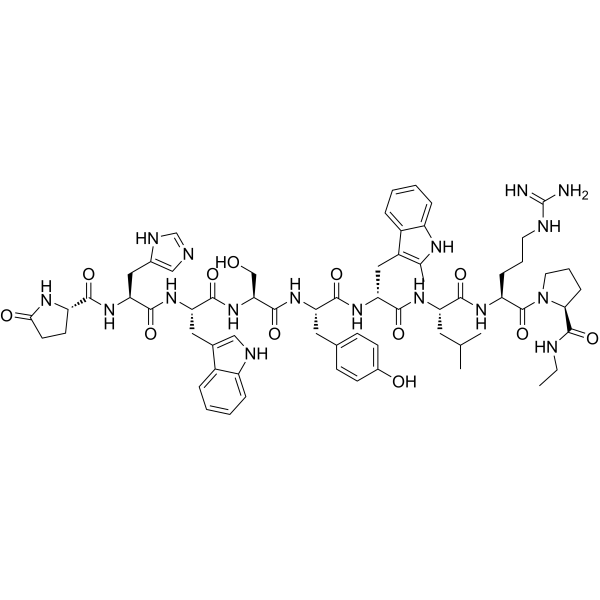
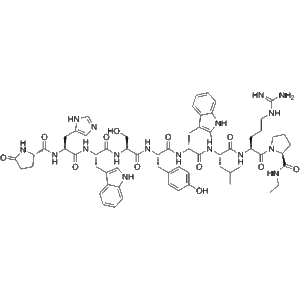
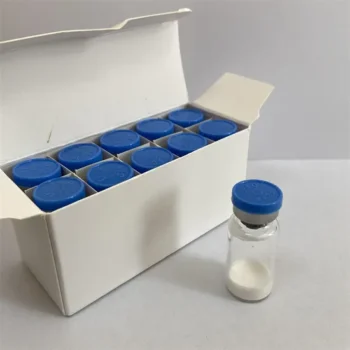
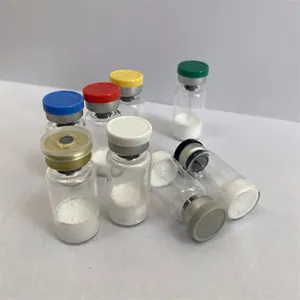
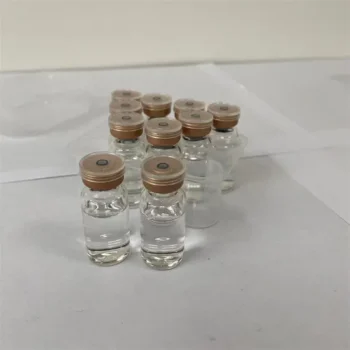
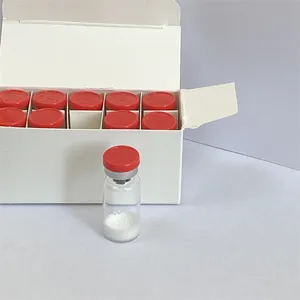
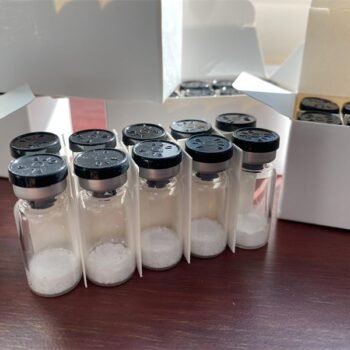
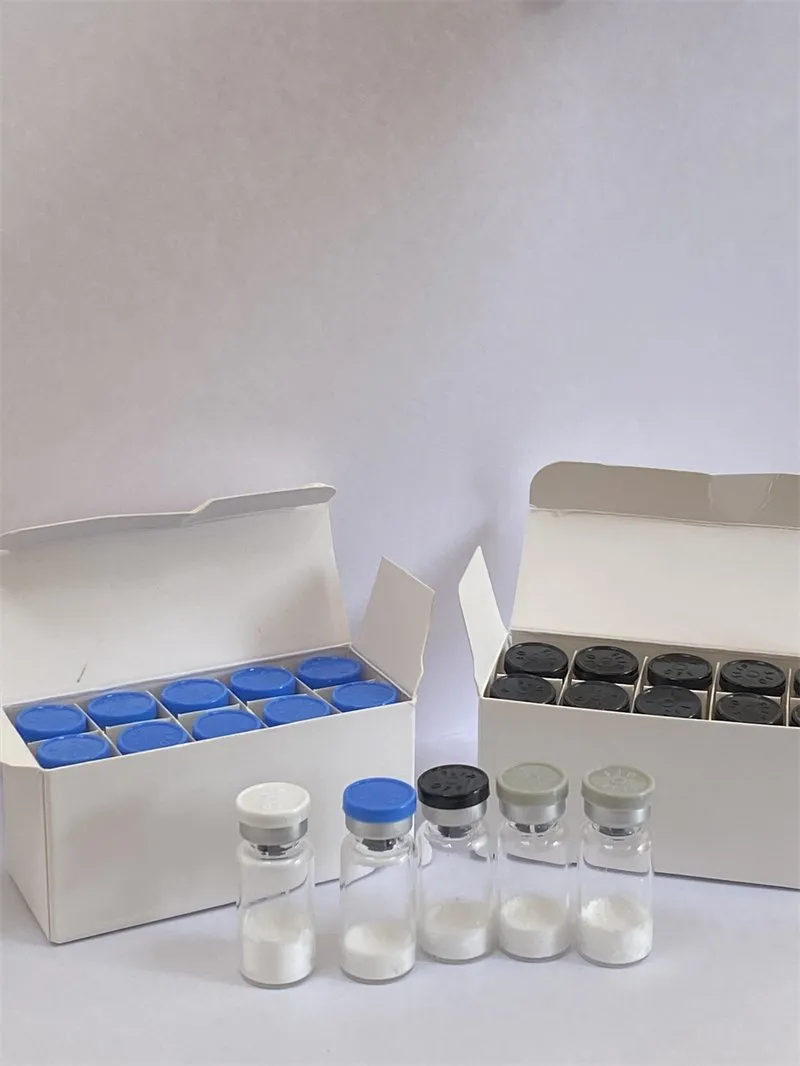

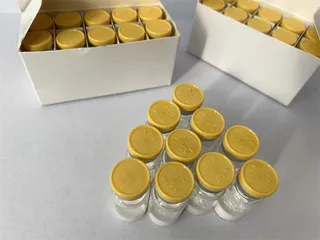
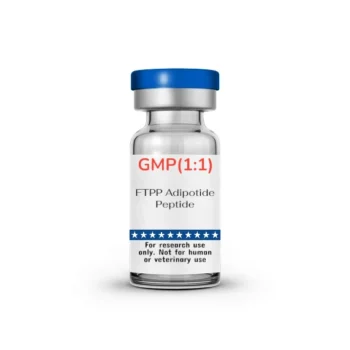
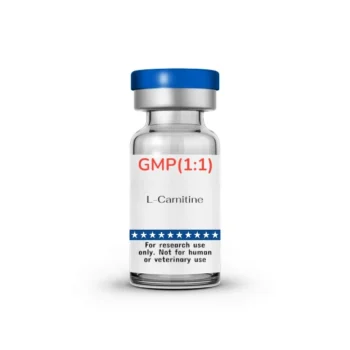
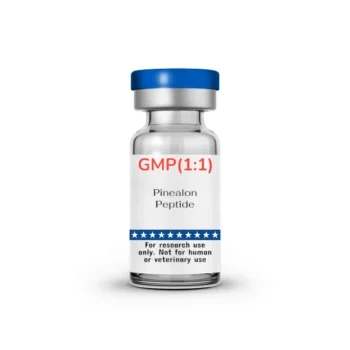
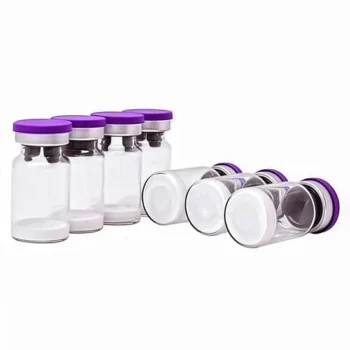
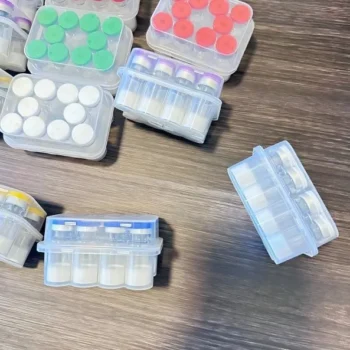
simber –
Service was professional and responsive throughout the order.